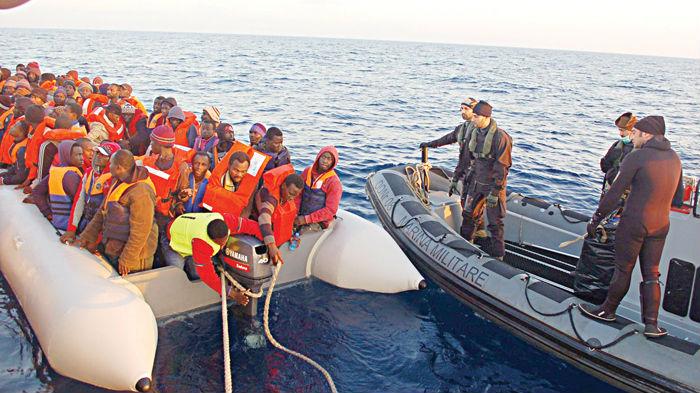Migrants Die After Confusion over SAR Laws

The International Maritime Rescue Federation (IMRF) has raised concerns over reports that some would-be rescuers may have been deterred from helping people in distress by concerns about territorial waters.
One such report, published in The Independent, states: “Australian national Simon Lewis says he and a team of rescue workers were sailing in international waters near the Greek island of Lesbos when they heard reports of a refugee boat nearby. Because the boat was still in Turkish waters at the time, Mr Lewis’ crew were not dispatched to the scene and were therefore not in a position to help when the vessel subsequently started to sink, leaving 31 people dead. Had the vessel made it into international waters before sinking then rescue workers could have approached them and helped.”
Without referencing any specific news report, Bruce Reid, IMRF’s Chief Executive Officer, says: “Great work is being done by professional rescue crews from all over Europe, coordinated by our friends in the Italian and Hellenic Coast Guards, with the assistance too of SAR colleagues in Malta and Turkey.
“But we are concerned by reports of less well-prepared responses at sea, by people whose good intentions are undoubted but who may not fully understand the procedures internationally agreed for maritime SAR – procedures which make a well-tried system work efficiently, to save more lives.”
International maritime law in respect of rescue at sea is clear, says Reid, who said it is important to recognize that rescue of people in distress is a duty placed on everyone at sea. That applies whether in territorial or international waters, and regardless of the legal status of the people in distress or the circumstances in which they are found.
All vessels at sea (with certain very specific exceptions such as warships, which are nevertheless encouraged to comply) must try to rescue people in distress if it is reasonably safe for them to do so. Distress is defined in common-sense terms: people should be considered in distress, and in need of rescue, if “there is a reasonable certainty that [they are] threatened by grave and imminent danger,” according to the International Convention on Maritime Search and Rescue – the SAR Convention, which is overseen by the IMO.
States which are parties to the SAR Convention are required to establish SAR services and to assist in rescue, including enabling vessels to land rescued people at places of safety. Anyone involved in SAR at sea should report to the relevant Rescue Coordination Centre, who will help them as necessary.
“It’s important too,” says Reid, “to emphasize that we are talking about rescuing people in distress here – people who will die if not rescued. This is different to highly important but less immediately urgent humanitarian responses, where lives are not imminently at risk. And it’s different to border control issues, too. SAR takes place within that broader context, of course – and the IMRF understands that the overall situation is complex.
“But SAR is simple in principle,” he added, “and its procedures are established in international law. If people are in distress at sea they must be rescued if possible, and ‘rescue’ includes being brought to a place of safety. The IMRF urges all concerned to find solutions to the wider issues, and to enable the maritime SAR services to do their lifesaving work.”
The International Maritime Rescue Federation (IMRF) is coordinating the work of its SAR organization members in support of the relevant SAR authorities in the main receptor countries – Greece and Italy especially. Its common aim is to provide properly coordinated and properly trained and equipped units where they are most needed.
David Hammond, CEO of Human Rights at Sea, says: “It is of great concern that reports of failures to rescue persons in distress at sea are being hampered by concerns over rescuers being allegedly criminalized for their humanitarian actions towards migrants in an irregular situation. If someone's life is in danger and the most basic human right, the right to life is threatened, then the first duty is to rescue and save life.
“The real issue is one of being seen to be facilitating irregular entry and which is punished in all 28 E.U. member states. It is articulated in the E.U. Facilitation Directive (Directive 2002/90/EC)51 and its accompanying Framework Decision 2002/946/JHA52. Nonetheless, eight individual E.U. States have safeguards under national legislation not to punish rescuers when irregular entry is facilitated for humanitarian purposes. Of note and highly pertinent to this situation is that Greece explicitly excludes the rescue of persons at sea and transport of persons in need of protection from punishment for facilitation of entry.”
More information is available here.
